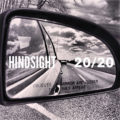
The only way to lessen the pain, is to feel the pain. Unfortunately, there is no way to avoid feeling the pain after losing a loved one to suicide. The shock accompanying a loss of this magnitude allows us to delay the intensity of the pain. Often times we think we are doing pretty well considering the traumatic experience of our loved ones death. Then it hits us. The overwhelming, excruciating, life altering pain. We question if there will ever come a day when the pain will lessen. So, how exactly do we get through the pain? We learn from it. Here are a few things that I learned from the pain I experienced after my dad’s suicide:
- What I didn’t do then, I could do now. My pain taught me a lot about regret. I regretted not calling my dad more. I regretted not telling him how much I loved him. I regretted not telling him what he taught me about life. Then one day, it was simply too late. For a long time I beat myself up for not doing and saying more. What I learned was, my regrets kept me in the pain. I couldn’t go back; I couldn’t change the past. But what I could do was make a conscious effort to tell the people I loved how much they meant to me. I no longer wait to tell them tomorrow, because I now know that there are no guarantees. This has made my relationships stronger, and more authentic. Most importantly, I am doing now what I didn’t do then.
- I learned to live in the present. A great deal of time is spent in the past after a suicide loss. We comb through every moment trying to figure out how and why this happened. I think we need to spend a little time in the past in order to make sense of our present. Problem is, we often get stuck in the past. There is a great deal of pain in the past. Living in the past, keeps us immersed in the pain. Living in the present helped lessen the pain. The past can’t be changed, but our future is still unwritten. Living in the moment helps to decrease the pain, one day at a time.
- I learned how to evaluate what truly matters in this life. I viewed my conversations with friends differently after losing my dad to suicide. In fact, most of the things people complain about appear to be so petty. For awhile, I pointed the pettiness out. I felt it was my duty to point out how petty their concerns were. What I learned was, this also kept me stuck in the pain. When people talk about something that is bothering them, they want to be validated. I certainly wasn’t doing that. It isn’t our duty to tell people what they should or shouldn’t care about. All we can do is control what we care about. These conversations still occur among friends. The difference is, now I listen, adding input as needed, but I don’t join in the negativity.
- I was able to weed out the people who weren’t who I thought they were. This was a tough one. For a long time, I viewed this as another person leaving me. Viewing myself as a victim kept me stuck in the pain. What I learned was, the relationships that I thought mattered never were as authentic as I thought they were. In fact, most were one-sided. I was the listener, they were the talker. Now that the dynamic had changed, and I was the one who needed the support, they simply couldn’t provide it. This wasn’t necessarily a reflection of them, but our relationship. Relationships have to adapt or they will fall apart. A few relationships did fall apart, and that’s ok. The ones that I maintained were more authentic and supportive than any of the ones that I lost.
- I learned not to settle for mediocre. Follow your dreams. Do what makes you happy. These were all simple statement until my dad’s suicide. Now they hold so much meaning. In my pain I learned that life is too short to settle for mediocre. I found my fear that I would one day end up like him. When I found that fear, I decided to fight it by choosing not to settle for mediocre. In a way, I feel like I am conquering his pain by making a conscious effort to find authentic happiness in this life.
- I learned to forgive. This was a big one. I found that forgiveness helped release a great deal of pain. Like most relationships, my father and I did not have a perfect relationship. There were painful moments in our past. Moments that he sought forgiveness for, and never fully received. I was holding on to the pain from our past. Forgiving him for his past mistakes, and ultimately his biggest betrayal helped me free myself from the pain. The only way to fully release the pain, is to forgive. Forgive the people you thought would be there. Forgive the person who left you behind. Forgive yourself for not being able to do more. Forgive.
It took me awhile to learn from my pain. I hope the lessons I have learned can help you find your own healing within your pain. There is always always always something to be learned. It just takes a little time to find it.




So helpful as always thankyou
I found such relief when I read your paragraphs on forgiveness. I thought I would need to feel angry before I needed to forgive. But my eyes filled with tears when I read that I needed to forgive my daughter for her ultimate betrayal, and for leaving me behind. And that I needed to forgive myself for not being able to do more. This is just what I needed to hear. Thank you so much!
So true…forgiveness is vital for healing. We can never go back or change who they were. I loved my husband in spite of all of his problems (alcoholism, bipolar, abusive to me) he wouldn’t help himself and I could “fix him”. That was ultimately up to him. I try to focus on the good times that we had in our relationship and let go of the hurt and pain more and more over time. I’ll never forget the vision of him taking his life in front of me but it has already lessened since Nov 16, 2016 due to the incredibly supportive family that I have and the comfort and peace I receive from the Lord. The pain and the imagery softens over time. I have learned much from this experience; like she said above, to love those in our lives that are with us now! Forgive and move forward and live the life that you were given to the fullest…the way it was intended to be.
Thank you for sharing. My daughter has been gone since November 2015, and life is feeling a bit more normal. Forgiveness is big. Especially forgiving myself for not being whatever it was my daughter needed. I miss her so much, but the pain has lifted and I am bolder to do things I’ve always wanted to do. Your article is right on the mark.
My mom took her own life five weeks ago. I found your blog yesterday and I don’t believe you will ever know how much it has helped me in just the last 24 hours. I was journaling yesterday, trying to figure out where I was I was in the grief cycle and realized I felt like I was recycling through it. I googled “grief cycle after suicide” which led me to your post about how the grief cycle was different for suicide. Your explanations of each stage resonated so deeply with me and has helped me navigate to where I am and know I’m not alone nor different for not fitting the mold. I lost my dad 18 years ago to cancer. I was only 19 and my grief was completely diffferent. I had concluded the difference was because I was so young and in such an already perplexing stage in life. After reading several of your other posts, including guest posts, I was greatly comforted by knowing I seem to be handling this as others have and I’m not alone in my handling. You are giving others a great resource to find comfort in this journey that no one wants to confront and some find it a taboo to speak of. Thank you for sharing your heart, wisdom and guidance with others. I pray many others will be led to the comfort I have found through your blog. May “The LORD bless you and keep you; the LORD make his face to shine upon you and be gracious to you; the LORD lift up his countenance upon you and give you peace” (Numbers 6:24-26).